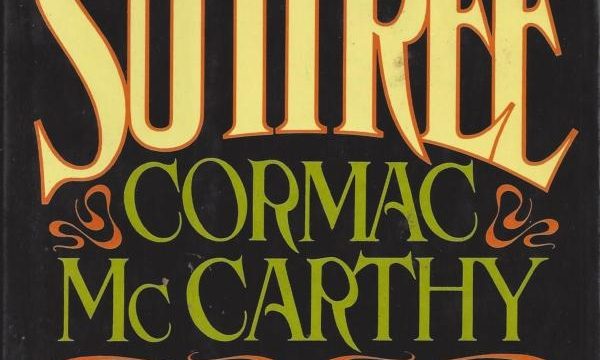Suttree is the same man as Paul Westerberg or Falstaff. They’re drunks and losers whose lack of achievement becomes an ethos. The same code as “I wouldn’t wanna be in a club that would want to have me as a member”: if you schmucks think you’re successful then fuck whatever that means, and fuck me anyways. I’ve lived with that as an idea for years and years. Sometimes I buy into it, sometimes I don’t. The “beautiful loser” is an old, American idea and stereotype, and I’m there at times: I don’t always take care of myself, I like dive bars over cocktail hours, and the abandoned places in cities appeal to something in me, the thing that liked the weirder spaces in New Hampshire where I grew up.
The truth is though, you shouldn’t be Suttree or Westerberg forever. Your liver can’t take that for one thing, and you can’t do a lot of the good, boring things in life: making friends, having a home, getting some sleep. Adult stuff is tedious sometimes, but it can be rewarding as hell when you give it a shot. In the eponymous novel, Suttree left all that behind with his wealthy family, his wife and kid. He lives in squalor on a houseboat in Knoxville, living with the grotesquerie of the world. There’s something almost Biblical to his adventures, Cain in exile, but much funnier as well. The humor of the book is stronger than it appears, especially the utter fuck ups of Harrogate, Suttree’s wretched friend who’s arrested for fucking watermelons, then does whatever the hell he can to get in more trouble.
And then of course Suttree becomes much like life itself in how the rug is yanked out from under us, especially in the pitiful funeral of Suttree’s son. We laugh, we thrive in just being alive at all, then we’re forced into grief and desolation, as with many of the best Shakespearean comedies, maybe the greatest non Southern influence on the proceedings. Joy is always balanced with pain. People die in the strangest ways possible, there are arrests and confrontations. Life almost goes on but is inevitably changed. And all the while Suttree carries on until he can’t quite do so here anymore. He drinks, has relationships that end in disasters, buries his child. He considers God and nature as you do in a Cormac McCarthy novel. He lives in a raggedy folk song, populated with the deranged and the beautiful.
And then the book, and Suttree, come to an ending, as things do. I read Suttree the summer that I was leaving Boston. I didn’t know exactly where I was going, I just knew that I was done there. And I could see myself in Suttree’s recognition that he has to leave, that life in Knoxville has come to a head with the imprisonment of Harrogate (again) and the death of a friend. It’s a melancholy, bittersweet ending, a man departing the place he loved to start all over somewhere else.
I don’t quite know what Suttree does after the last lines linger: does he get married again, have another boy, live the life his father always wanted for him of prosperity and influence? Does he just find another houseboat to sleep in, in another city, another state? Doesn’t much matter. He’ll keep going as we all do until he can’t. This book is about an era of life until it becomes a farewell to that time, the time that was good. It stays with me still, as the other cities I’ve lived in linger. I wouldn’t say I’m a winner, but I’m not as self-destructive as I once was either. Like I said, you shouldn’t be a Suttree forever. But maybe you can have that inside, carry it, and know when to make the choice not to be that guy. Suttree made his decision long ago.

